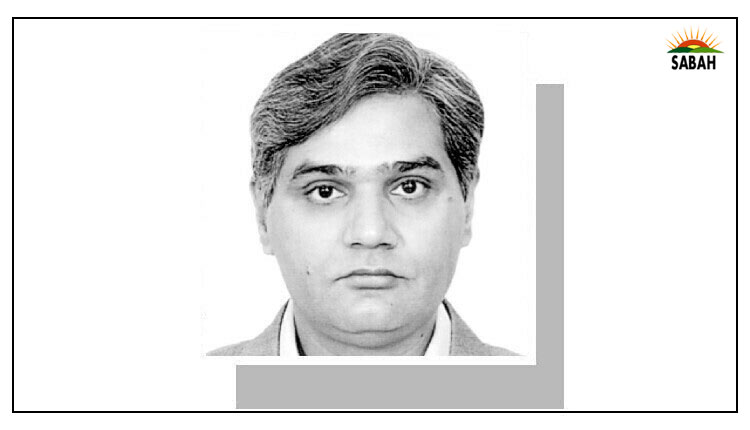Senate of Pakistan passes the Supreme Court (Practice and Procedure) Bill 2023 with majority votes to curtail CJP’s suo moto powers
ISLAMABAD, Mar 30 (SABAH): The Senate of Pakistan on Thursday passed the Supreme Court (Practice and Procedure) Bill 2023 with majority votes 60/19, which aims to deprive the office of the chief justice of Pakistan (CJP) of powers to take suo motu notice in an individual capacity.
The bill had been approved by the federal cabinet on March 28 and a day ago, the National Assembly passed it as well after a few amendments suggested by the Standing Committee on Law and Justice hours earlier.
The amendments which have been proposed in the Supreme Court’s rules, have sparked a fresh debate in legal and political circles and it is expected that the bill may be struck down by the apex court.
As the bill was moved by Federal Minister for Law and Justice Senator Chaudhry Azam Nazir Tarar Advocate in the Senate on Thursday, strong opposition from the PTI members was seen as they raised banners reading “attack on judiciary unacceptable”.
Moving the bill in the Senate on Thursday, Tarar said, “As time passes, to run institutions, you have to go through various periods [and] face various conducts.
“Law never stands still. You have to keep a margin for changes in the law so that the law can function according to the needs of the people in the present age,” he added.
The law minister said, “A new trend was seen in the Supreme Court in the past two decades — instead of running the court through collective thinking, the court became dependent on an individual.”
Tarar argued it was the opinion of various stakeholders in the country — including “Bar Councils, Bar Associations, Parliament, civil society, business sector and government officials” — that an order of “trichotomy of power” has been devised in the Consitution.
According to it, “legislation is the work of the appointed, judicial matters will be overseen by the adjudicator — the judiciary — and the administrative machinery to run the country will be subordinate to the Executive”, he added.
Bashing the excessive use of Article 184(3) of the Constitution, he said, “Executives were made to stand on the rostrum repeatedly. Such suo-motu notices were taken […] that matters of cleaning streets were also brought up.”
The minister lamented that the “state had incurred losses worth billions of dollars due to suo-motu notices”, mentioning that losses were faced in the Steel Mills matter and the Reko Diq agreement.
“The liver hospital also became victim to the chief justice [of Pakistan’s] personal ego,” he further said.
Tarar said voices had arisen from the various bar bodies and the Senate that the “jurisdiction of Article 106 of the Constitution be restructured at least” so that it would reflect “collective thinking”.
Defending the need for the bill, he said that there were demands in the recent Senate sessions as well to do legislation to “solve the issue”. He also highlighted that two amendments had been suggested on Wednesday by the standing committee.
Detailing the salient features of the bill, the law minister said that there had now arisen an opinion from within the Supreme Court that the power to constitute benches should not lie under one person only.
“Only collective thinking takes institutions forward. If you want to strengthen institutions, then strengthen the system instead of the personalities so that the institution can deliver,” he asserted.
Tarar further said the bill would solve the issues of deciding when a certain case has to be fixed for hearing and whether it is of public importance or not.
Recalling that there had been demands for a full court bench when “highly important national cases” were fixed for hearing by a three or five-member bench, he highlighted the last full court meeting was in 2019 — what he termed “in-auspiciousness of luck”.
Moreover, the law minister asserted the bill would curb the “injustices” done in cases by giving the respondents the right to appeal the verdict.
He said conflicts between two parties were brought to public importance: “You saw [orders] in Karachi that demolish this tower but in Islamabad, you saw [orders] that these two towers are extremely valuable and are not to be demolished. This should not be the standard for justice.”
On the amendment to give the right to appoint counsel of choice, he argued upon reading Articles 4 (right of individuals to be dealt with in accordance with law, etc), 10A (right to fair trial), and 25 (equality of citizens) of the Constitution, it is clear that it is a constitutional right to have a lawyer of one’s choice.
Before the final vote on the bill, a motion was presented to send the bill to the Senate Standing Committee on Law and Justice for further debate but it was rejected. The motion for the urgent approval of the bill was then presented which was accepted by a majority of lawmakers.
Once the bill was tabled in the Senate, Law Minister Azam Nazir Tarar explained that the proposed law is providing the right to appeal in suo motu cases and to appoint a different lawyer in the appeals.
However, Leader of the Opposition Dr. Shahzad Waseem slammed the bill saying that the government is unable to ensure a smooth distribution of wheat and planning to make rules for the Supreme Court.
“Making rules for the Supreme Court is an indirect attack (on the judiciary. You are trying to create division in the Supreme Court,” claimed Dr. Waseem. He added that the bill did not talk about the right of appeal before and later in the standing committee the right to appeal was also given on previous cases.
“Give the bill to the committee and let it bring its changes,” said the Pakistan Tehreek-e-Insaf (PTI) senator and called for a vote on the matter.
As the opposition leader was making his speech, the PTI senators hold a protest in the upper house.
When PTI Senator Ali Zafar was given a chance to speak, he said that he had two objections to the bill.
“Only constitutional amendment can be made in 184/3. If you pass laws this way then it will be struck down within 15 days,” warned the senator. He added that the right to appeal can only be given through the Constitution.
Zafar said that the Senate’s standing committee had sent a constitutional amendment for the right to appeal. He also warned that by opening past cases the Supreme Court will have to hear thousands of cases again.
“There is also a divide among the lawyers on this bill. Such amendments cannot be made without amending the Constitution,” said Zafar. He added that some changes suggested by the bill are illegal.
The senator also objected to the timing of the bill as that an election suo motu was ongoing in the Supreme Court.
After passage of the bill, the session was prorogued till 10:30 AM today (Friday).
A day earlier, in a bid to bolster checks and balances in the higher judiciary, the National Assembly passed the Supreme Court (Practice and Procedure) Bill, 2023, tabled to limit Pakistan’s top judge’s discretionary powers to take suo motu notice.
The bill was passed hours after National Assembly Standing Committee on Law and Justice gave its consent.
The bill was moved by the government after two Supreme Court judges — Justice Syed Mansoor Ali Shah and Justice Jamal Khan Mandokhail — raised questions over the powers of the chief justice of Pakistan (CJP), saying the apex court “cannot be dependent on the solitary decision of one man, the Chief Justice”.
The bill includes shifting the powers of taking suo motu notice from the chief justice to a three-member committee comprising senior judges.
Moreover, the bill also includes a clause regarding the right of challenging the decision which could be filed within 30 days and will then be fixed for a hearing in two weeks.
According to the bill — a copy of which was seen by Geo News — every clause, appeal or matter before the Supreme Court shall be heard and disposed of by a bench constituted by the committee comprising the CJP and two senior judges, in order of seniority.
The bill also mentioned that the decision of the committee shall be by the majority.
It was also mentioned in the bill that any matter invoking the exercise of original jurisdiction under clause (3) of Article 184 of the Constitution shall be placed before the committee constituted under section 2 for examination and if the committee is of the view that a question of public importance with reference to enforcement of any of the fundamental rights conferred by Chapter I of Part II of the constitution is involved, it shall constitute a bench comprising not less than three judges of the Supreme Court which may also include the members of the committee, for adjudication of the matter.
Meanwhile, in matters where interpretation of the constitutional provision is involved, the committee shall constitute a bench comprising not less than five judges of the apex court.
The bill also grants the party the to appoint counsel of its choice for filing a review application under Article 188 of the Constitution. It should be noted that the counsel, for this purpose, shall mean an advocate of the Supreme Court.
“An application pleading urgency or seeking interim relief, filed in a cause, appeal or matter, shall be fixed for hearing within fourteen days from the date of its filing,” the bill read.












